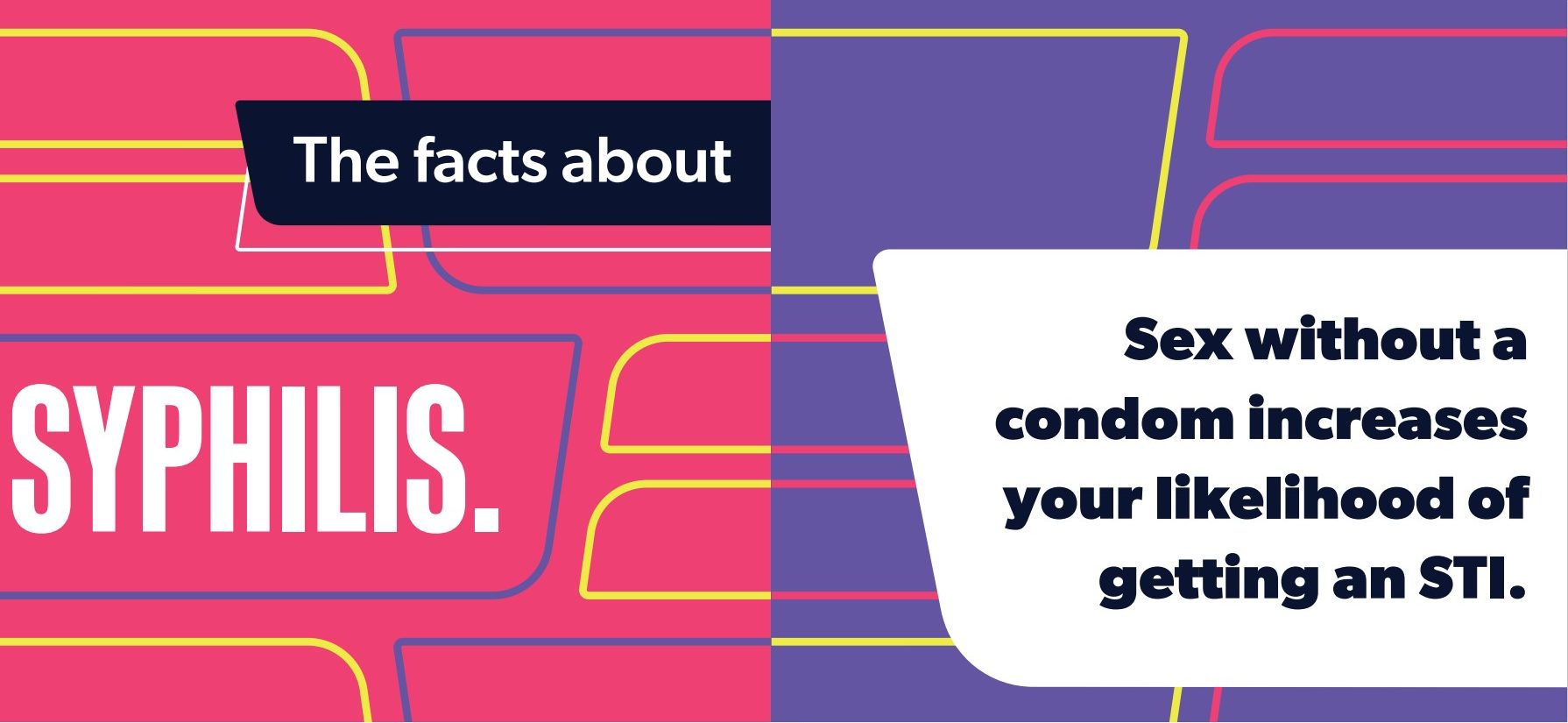What is Syphilis and how it is passed on?
Syphilis is an infection which is caused by bacteria which spread easily through anal, vaginal and oral sex. Syphilis bacteria can also spread by sharing sex toys and from a mother to baby.
Syphilis symptoms
In the early stages of syphilis, you could develop a painless sore on the penis, vagina, in the mouth or around the rectum. The sores might clear within weeks without any treatment. The first presentation in some patients might be a blotchy rash on their body and or rash on the palms of the hands or soles of the feet, some patients might present with raised lymph glands, patchy scalp hair loss, and white patches in the mouth or growths on the anogenital region that might look like warts.
People might have no symptoms at all for many years, after which they develop symptoms of late stages of syphilis, where the heart, brain, bones and nervous system might be affected and seriously damaged. People during late stages of syphilis, might develop, stroke, dementia, loss of coordination of their movements, blindness, or heart problems. Some of these presentations might be only partially reversible with treatment which cannot repair the damage that has already been done.
Some people might have no symptoms at all and syphilis is only diagnosed by a blood test, hence we encourage all people and especially those who practice unprotected sex to have a full sexual health screen when syphilis test is offered as part of the screen. Testing for Syphilis and other sexually transmitted infections in the sexual health clinic and GPs is free and confidential.
How is Syphilis diagnosed?
Syphilis is usually diagnosed by a blood test. A swab from a syphilitic sore or lump, if present, can also help to diagnose syphilis.
How is Syphilis treated?
It is easy to treat syphilis with antibiotics. Antibiotics cure syphilis as long as the diagnosis is made early and before any serious damage which can occur in the untreated individual in the later stages of syphilis. The type of antibiotic will be discussed with you in the sexual health clinic. It is either given by injection or a course of tablets. You will need to abstain from all types of sex including oral until 2 weeks after your treatment is completed, and until all symptoms, if you had any, settle.
If you don’t get it treated, you can pass on syphilis to a sexual partner. A mother can also pass the infection to her baby. Untreated syphilis can cause health problems as detailed above in the Syphilis symptoms section.
Syphilis partner management
People you had sex with also need to get checked – we call this partner management. A clinician from the sexual health service can let them know if you don’t want to. This is very important to break the chain of infection which can spread to other people if the sexual contacts do not get treatment. You can catch syphilis again after your treatment if you have sex with an untreated partner.
Syphilis and pregnancy
· If you are pregnant, you will be offered a blood test for syphilis because the infection can be very dangerous for the baby, and they could be born with it.
· It’s easy to treat syphilis in pregnancy and the treatment will not harm the baby.
Syphilis and HIV
· Having syphilis could make it easier for you to contract or pass on HIV
Reduce your risk
· Avoid touching the sores or the rash.
· Using external or internal condoms can cut the risk, but only if the condom covers the sores or rash. Using a dental dam during oral sex can also cuts the risk.
· Avoid sharing sex toys – if you do, wash them and cover them with a condom every time.
It is important to know that other types of contraception like the contraceptive pill, give you no protection from syphilis or other STIs.
Regular check-ups
You can have STIs without knowing, so regular check-ups are a good idea. This is especially the case if you’re starting a new relationship or you want to stop using condoms with your partner.
For further information or to book and appointment with us, please call 0191 4028168

